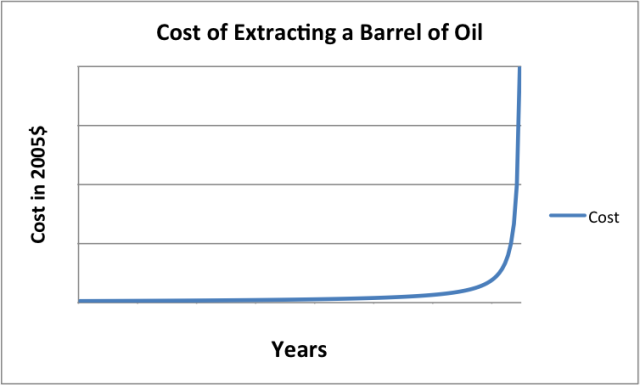What is the real story of energy and the economy? We hear two predominant energy stories. One is the story economists tell: The economy can grow forever; energy shortages will have no impact on the economy. We can simply substitute other forms of energy, or do without.
Another version of the energy and the economy story is the view of many who believe in the “Peak Oil” theory. According to this view, oil supply can decrease with only a minor impact on the economy. The economy will continue along as before, except with higher prices. These higher prices encourage the production of alternatives, such wind and solar. At this point, it is not just peak oilers who endorse this view, but many others as well.
In my view, the real story of energy and the economy is much less favorable than either of these views. It is a story of oil limits that will make themselves known as financial limits, quite possibly in the near term—perhaps in as little time as a few months or years. Our underlying problem is diminishing returns—it takes more and more effort (hours of workers’ time and quantities of resources), to produce essentially the same goods and services.
We don’t measure our investment results with respect to the quantity of end product produced (barrels of oil produced, liters of fresh water produced, kilos of copper produced, or number of workers provided with sufficient education to work in high tech industries), so we don’t realize that we are becoming increasingly inefficient at producing desired end products. See my post“How increased inefficiency explains falling oil prices.”

